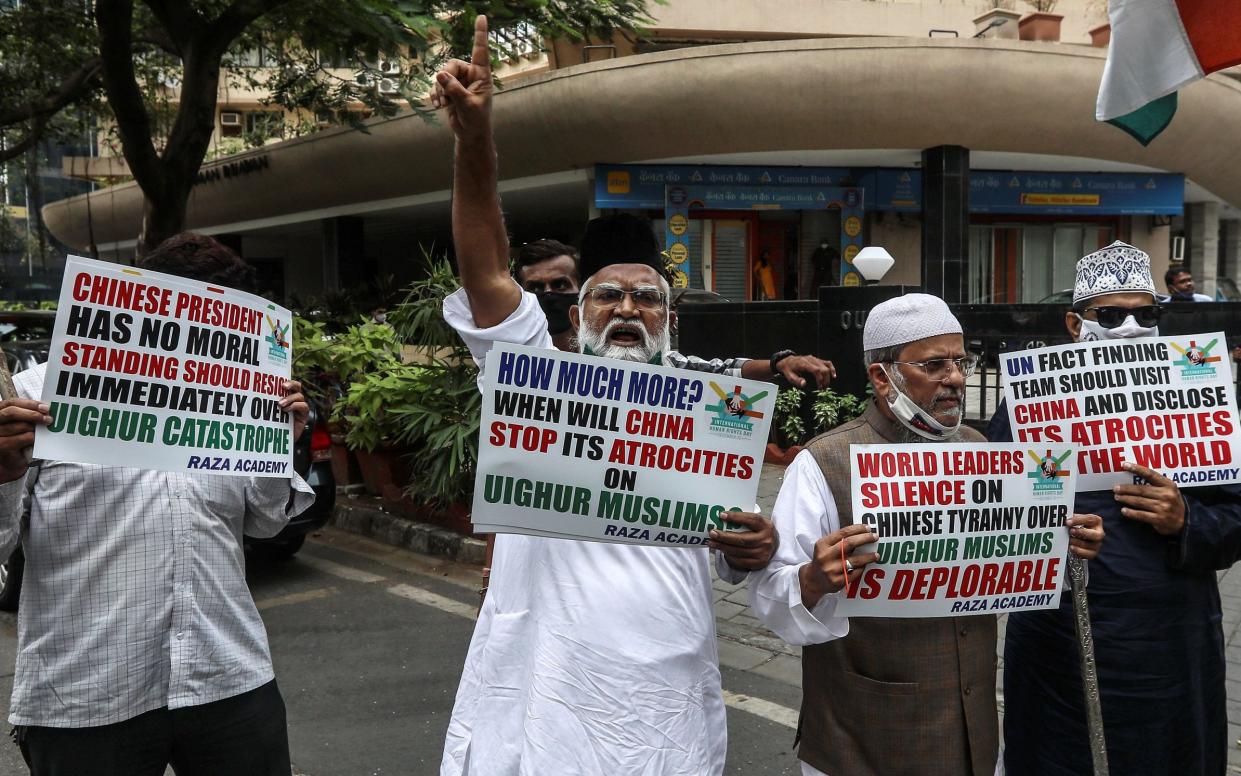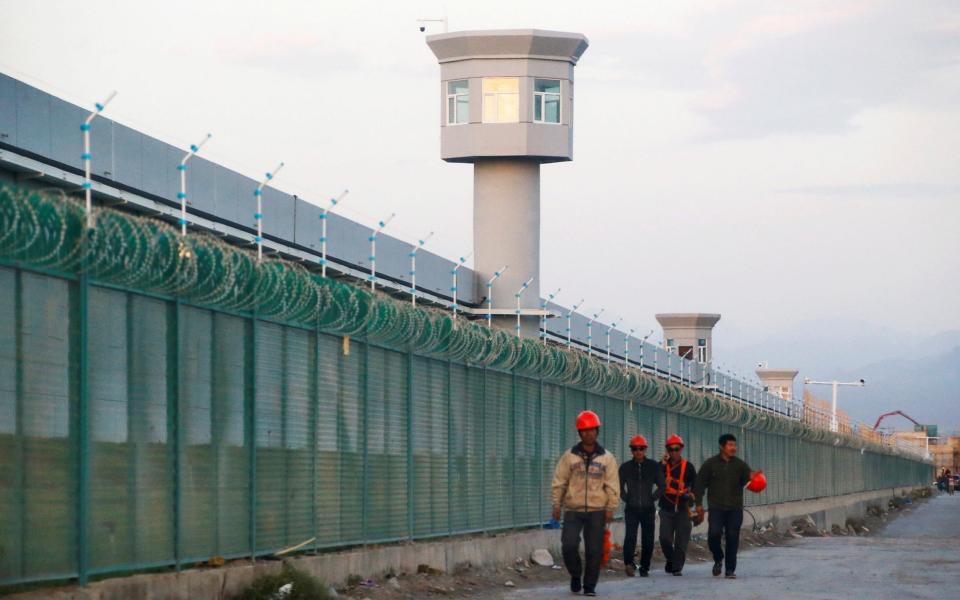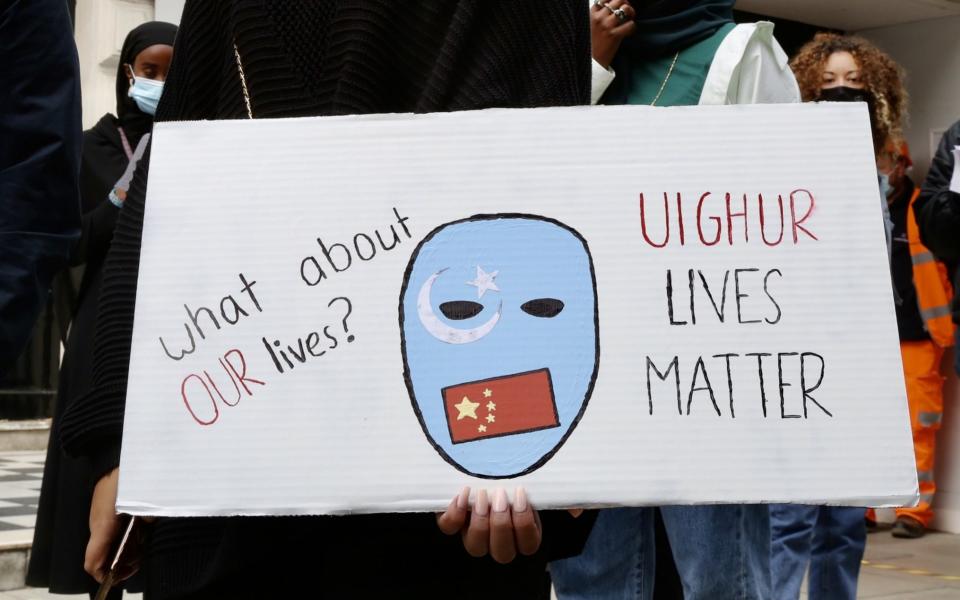Retailers under pressure to ban cotton from Uighur, China, after forced labour allegations

British high street brands including John Lewis are under pressure by human rights campaigners to ban cotton picked in the part of China that is home to its oppressed Uighur population.
It came after reports revealed at least half a million Muslims are being forced to work in the fields of the Chinese region amid an ongoing anti-Muslim crackdown by Beijing that has seen people detained and put into so-called re-education camps.
Campaigners said retailers’ existing policies do not go far enough to ensure that cotton from the region, known as Xinjiang, does not end up in the supply chain and that it seemed virtually impossible to ensure that raw materials from the region are not the product of forced labour.
Xinjiang is a major global hub for the cotton industry producing 85 per cent of China’s and 20 per cent of the world’s cotton, and relies heavily on manual labour to do so.
John Lewis would not say it would ban raw materials from the region, although its code of conduct does prohibit suppliers from using cotton gained through force labour, while Sainsbury’s said it will have moved to sustainable cotton by 2025.
Carry Somers, of Fashion Revolution, a not-for-profit organisation, said retailers should not shift responsibility onto their suppliers and that a ban on cotton from the Xinjiang region is necessary.
She said: “Whilst many brands have been quick to reassure their customers that they don’t sell clothing sewn in Xinjiang region, most of them have only a shadowy picture of where their cotton comes from.
“In order for brands and retailers to eliminate the use of forced labour such as the Uighurs and other minorities who are picking and processing the cotton for our clothes, they first must trace their entire supply chain.”

John Lewis said none of its products are made in the Xinjiang region. A spokesman said its production sites are independently audited and no signs of forced labour have been found to date.
She added: “We take human rights extremely seriously and regularly remind our suppliers about our Responsible Sourcing Code of Practice which states that employment must be freely chosen and this applies to the whole of our supply chain."
A Sainsbury’s spokesman said: “We do not source any own brand clothing or general merchandise products from the Xinjiang region.”
The firm said its suppliers must meet high ethical standards and are regularly required to demonstrate this and that it is working with campaigners to better understand the concerns.
Debenhams said it is investigating its supply chain and does not intend to use cotton from Xinjiang in the future.
Other retailers including Asos and Boohoo said they require suppliers to refrain from using cotton sourced in the area.
Of 18 retailers contacted by the Telegraph, 10 did not respond to questions over their policy on raw cotton from the region.
Tamara Cincik, of Fashion Roundtable, a lobby group, said: “As someone from Muslim heritage, I take this issue very seriously and urge all brands to consider their supply chain options, moving to organic cotton manufactured by transparent and ethical farms and factories, with governmental legislation to support that business transition.”

Information from Chinese government documents and state media reports provide evidence that hundreds of thousands of people have been forced to pick cotton by hand in China under a Government scheme, the Center for Global Policy says.
It alleges that in 2018, three majority-Uighur areas within Xinjiang alone mobilised at least 570,000 people to pick cotton through the scheme and recommends that companies be required to thoroughly investigate the role of Chinese cotton in their supply chains.
Cotton pickers are transferred in tightly supervised groups, and on site are watched by government officials and, at least sometimes, by police officers, the report says.
Some areas put Uighur children and elderly people into “centralized care” while working-age adults are away picking cotton. Supervisors also administer “political indoctrination sessions” to the workers.
Beijing denies that Uighurs’ rights are abused and says re-education centres provide vocational training to help people gain employment, and are necessary to curb extremism.

